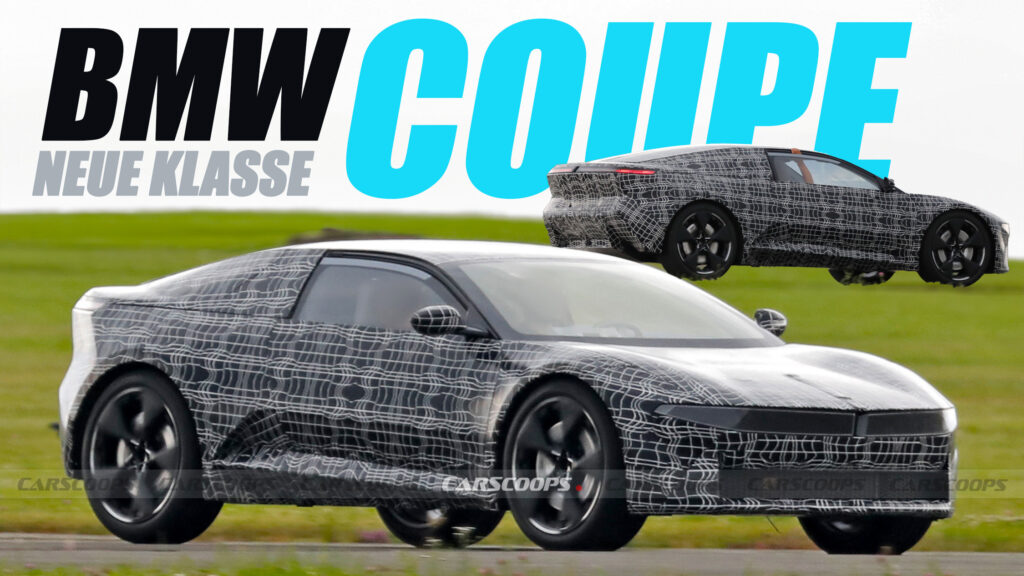News
Join Carscoops as a Writer!

BMW unveils futuristic electric sports car: Giga Gears
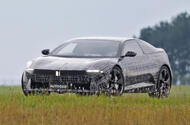
New prototype was spotted testing near BMW's R&D centre in BavariaPrototype coupé with four in-wheel motors has been spotted testing; may succeed i8 as Neue Klasse flagship
BMW is priming a futuristic two-seat coupé in the vein of the famed i8, which may arrive as part of its incoming Neue Klasse electric car line-up.
A new prototype has been spotted testing near the firm’s R&D base in Bavaria. Although heavily camouflaged, it clearly wears several key design cues from the Neue Klasse and Neue Klasse X concepts, such as the reinterpreted kidney grille.
It appears to be powered by four in-wheel motors, given the absence of visible brake calipers. This represents a change of tack from BMW’s existing EVs, such as the i4, which have motors mounted inboard of their axles.
BMW last year invested $16.1 million (£12.6m) into Deepdrive, a motor specialist based minutes away from its R&D base in Garching, near Munich.
Deepdrive claims its drive units – both in-wheel and conventional ‘central drives’ – are more cost- and energy-efficient than those currently on the market, with greater torque density to boot.
For reference, its range-topping RM2400 in-wheel motor puts out up to 250kW (335bhp) and 2400Nm (1770lb ft) of torque in a package measuring 20in in diameter and weighing 37kg.
BMW previously said its new Heart of Joy drive controller, claimed to be instrumental to the character of its its upcoming EVs, can support outputs of up to 1000kW (1341bhp). That exactly matches the combined outputs of four RM2400 motors.
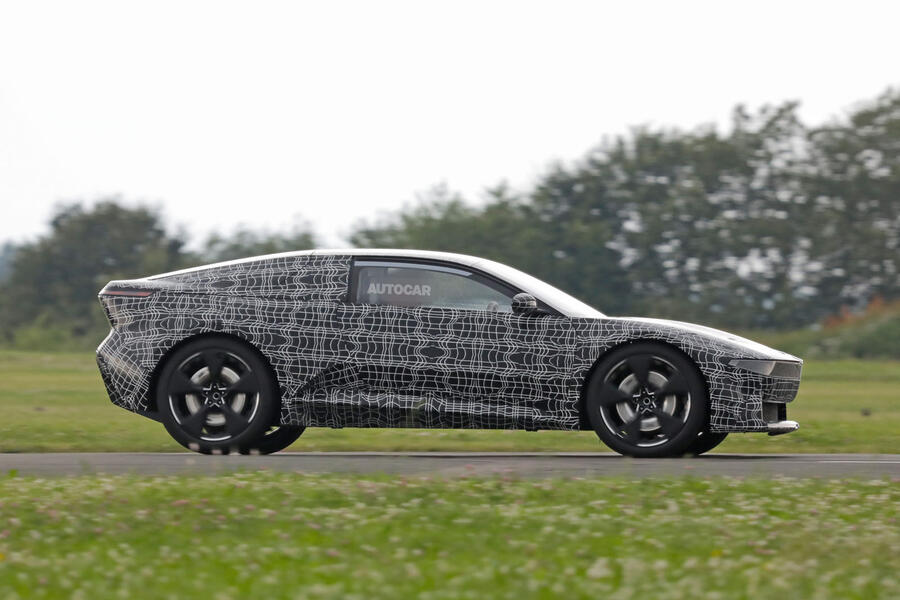
Deepdrive co-CEO Felix Poernbacher recently told trade publication Automotive News that his firm is on track to begin small-scale production of its dual-rotor motors in 2026, with “large-scale” output following in 2028.
Poernbacher added that Deepdrive expects in-wheel motors to account for 5-10% of the total motor market by 2030, implying it will prioritise production of the more conventional central drive units.
This suggests the new BMW coupé will be a strictly limited prospect. It's possible that it could arrive as the flagship in the wave of incoming Neue Klasse models. The first two – a new iX3 and an electric 3 Series – will be launched next year.
BMW has yet to confirm any such plans, but there is an apparent appetite within the company to produce a hard-charging flagship sports car. It previously designed a hybrid mid-engined supercar called the i16 but stopped work on the project at the onset of the Covid pandemic in 2020.
Autocar has contacted BMW for comment.
$440,000 ’67 Mustang EV Sales Attempt Fails
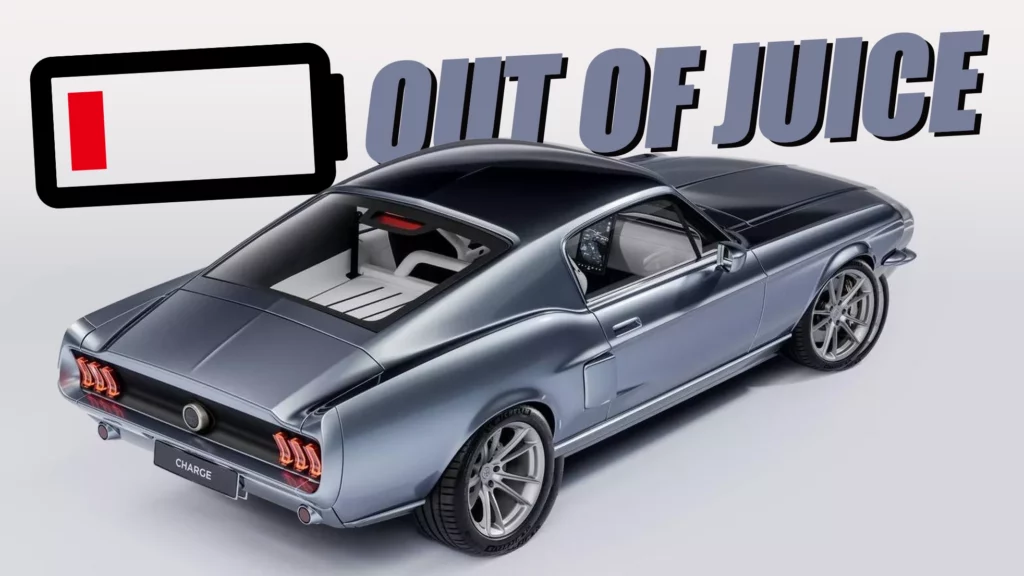
Porsche’s Carbon Neutral Fuel Racing Gamble
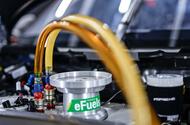
The fuel is created by synthesising renewable hydrogen made from electrolysis using wind-generated electricityWe explain the production process and application of Porsche's e-fuels; used without mechanical modifications
Cars competing in this year’s Porsche Mobil 1 Supercup series will run on fuel that Porsche describes as “near carbon-neutral”.
The fuel is produced at the Haru Oni plant in Chile and created by synthesising renewable hydrogen made from electrolysis using wind-generated electricity. The CO2 also used to make the e-fuel comes from bio sources, although in future it will come from direct air capture (DAC).
The series has been run since 2021 using a second-generation, bio-based, partially synthetic fuel, but this year’s trial will be a first for the fully synthetic renewable fuel in its pure form.
Unlike production Porsches, the ECUs of which all share a stock engine map, the race cars’ ECUs are mapped manually, and Porsche says they have been programmed to suit the renewable fuel. The Supercup cars haven’t needed any other mechanical modifications.
Porsche describes its fuel as “near” carbon-neutral, but to be strictly accurate, aside from secondary CO2 generation from, say, transport and other factors, the raw fuel should be about as carbon-neutral as it’s possible to get for now. So how is it made?
The Haru Oni site was chosen because it’s consistently windy all year round: a turbine there can generate far more electricity than in European locations. It’s estimated the plant’s 3.4MW turbine can run at full load for an average of 270 days per year, compared with 66 days for the same turbine in Germany. The electricity it produces is used to electrolyse water to create renewable hydrogen.
Hydrogen and CO2 are heated at high pressure over a catalyst to produce methanol. The raw methanol is distilled to reduce its water content from 36% to 4% and then fed into a reactor that bonds the carbon atoms in the methanol together to form long hydrocarbon chains, which are the raw, synthetic petrol. After more processing, the final product emerges as 93 Octane petrol; after blending with additives the octane rating is raised to a minimum of 98.
The DAC project being worked on with the wider Volkswagen Group and other partners is still at the ‘proof of concept’ stage. Volkswagen established it should be commercially viable to capture CO2 from the air five years ago, and it is working with partners HIF Global and MAN Energy Solutions to show it can be done. A DAC plant can be set up anywhere there’s a source of renewable electricity.
The Porsche Mobil 1 Supercup series runs as part of the support programme at eight Formula 1 races this year, with the first being at Imola earlier this month. It’s predicted the 32 Cup cars will consume 50,000 litres of the renewable fuel during the season.
In comparison, the planned maximum annual output of the Haru Oni plant, which began producing at scale in 2022, is 130,000 litres. Porsche sees e-fuels as complementary to ramping up its share of electric cars, and it is still aiming at a global production mix of 80% pure-electric cars by 2030 as long as there’s demand for them.
BMW Neue Klasse EV Coupe Spotted with Innovative Tech and Futuristic Design
